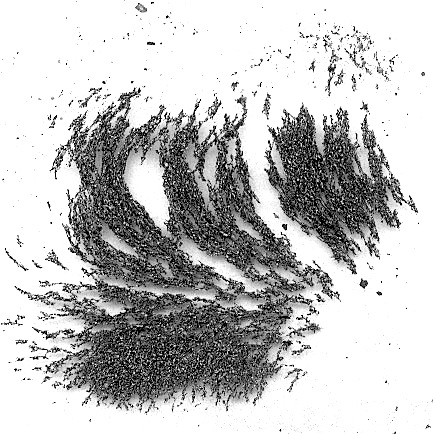Navigating the site:

Scientists

"A person first starts to live when he can live outside himself, when he can have as much regard for his fellow man as he does for himself. Life is a gift and if we agree to accept it we must contribute in return. When we fail to contribute we fail to adequately explain why we are here."
"It is always a question of mankind itself. Man and his fate must always be the center of scientific endeavors with all our geometric diagrams & equations we should never forget that."
"While technology and commerce clearly compel us to recognize the bond between all nations, and thus a common world culture, no war has ever so intensely disrupted cultural cooperation as the present one."
"Manifesto to the Europeans," October, 1914.
Albert Einstein
He loved sailing & playing the violinHis original theories were fundamental to the nature of the universe
Astonishing amount of originality -- intuitive understanding -- a fresh look at finding where the question is. [I.e. acceleration & gravity are so similar as to be indistinguishable to the accelerating observer]
He questioned the basic understanding of space & time with velocity and an audacious vision of a "simple & beautiful" underlying reality.
Clocks slow, rulers shrink, and velocity alters space & time at the speed of light!
"Einstein has made a universe & I can't tell you how long it will last."
{The world of Ptolemy endured 1400 years -- & later Newton's endured 300 years}
Nobel Prize [1920-21] for the paper on the Photoelectric Effect (1905)
In 1905, Einstein explained the heuristics of how photons
disturb electrons as these electrons are attracted to the nucleus of an
atom. Waves of light when striking an atomic element behave as quantum
particles called photons. Electrons absorb these quanta when photons of
a certain frequency add energy to the orbital electron. The electron then
moves farther away from the nucleus when the electron emits quanta of
light (photon) it moves closer to the nucleus (rest state of the electron).
In 1917, he renounced German citizenship & He worked at the Kaiser Wilhelm Institute in Berlin.
1920s he signed a pacifist pact with Gandhi renouncing war.
1923, he went to Palestine for a tour of new Zionist settlements.
1933, then he moved to Pasadena to work at Cal tech.
1934, he moved to Princeton, N. J. where he remained until his death.
Einstein’s reply to Bohr & Heisenberg on observational methods: 1926
"Possibly I did use this kind of reasoning, but it is nonsense all the same. Perhaps I could put it more diplomatically by saying that it may be heuristically useful to keep in mind what one has observed. But on principle, it is quite wrong to try founding a theory on observable magnitudes alone. In reality the very opposite happens. It is the theory which decides what we can observe."
Other comments on the scientific method.
His social interests
Einstein asked Freud:
"Is it possible, to so guide the psychological development of man that it becomes resistant to the psychoses of hatred and destruction?"
Freud answered:
"Why are we, you and I and so many others, so indignant about war? Why don't we accept it as we do so many other painful calamities of life? It seems to be natural occurrence, biologically well founded and . . . scarcely avoidable."
People make war because it makes them feel good eases pain.
Einstein wrote Freud, "Until recently I could only apprehend the speculative power of your train of thought, together with its enormous influence on the Weltanschauung of the present era, without being in a position to formulate a definite opinion about the amount of truth it contains. Not long ago, however, I had the opportunity of hearing about a few instances, not very important in themselves, which in my judgment exclude any other interpretation than that provided by the theory of repression."
"Do the roots of ethnic hostility lie in the infantile need to externalize unwelcome self images?"
[V. Volkan: The Need to have Enemies & Allies]
"In many societies a community's ethnic rival serves much the same function, becoming the target of individuals' projected guilt & self-loathing."
"They [Germans] will largely kill each other off" he wrote a friend, 1930s.
Leo Szilard encouraged Albert Einstein to write to President Franklin Delano Roosevelt about the advanced status of Nazi uranium physics research and experiments. He also encouraged Einstein to warn the President not to use the bomb on the Japanese civilian population.
"We did not want it exploded over a Japanese city."
Eugene Wigner
Einstein protested the unconscionable use of the bomb to Roosevelt.
"I made one mistake in my life when I signed that letter to FDR about the need to build the bomb."
The Einstein committee because AE headed the group with the help of Bertrand Russell, Hans Bethe, & Linus Pauling.
"They are really remarkably cheap." [Linus Pauling on nuclear weapons]
"The spirit must again overcome technology."
Einstein's Diary
The following ideas are vintage Einstein after the events of the 1950s:
"The mechanization & dehumanization of human life. . . humanity grows cold"
"Radioactive poisoning of the atmosphere . . . has been brought to within technological capability."
"Look deep into nature and then you will understand." [Verstehen]
Nature, according to Einstein, is a mystery that transcends mere sensory perception.
He had a lack of fear of time and death according to biographer Abraham Pais:
"We appear for a short stay without ever knowing why. For me it is enough to wonder at nature's mystery."
Einstein & Bohr | Einstein and Freud | His ideas | Gravitation | Objectives | Discoveries | Contributions
Einstein’s contribution amounted to an over arching theory to explain the behavior of all nature in the universe.
He carried on a 20-year debate with Niels Bohr over Quantum Mechanics and the statistical behavior of events in the universe.
Einstein argued that "God does not play dice with the universe."
The organic simplicity of Einstein was at odds with wave-particle duality & Heisenberg's uncertainty principle which he felt introduced chance & randomness into the heart of physical events where it had no place in reality.
Einstein's objectives:
"I wished to show that space-time is not necessarily something to which one can ascribe a separate existence, independently from the objects of physical reality.
Physical objects are not in space, but these objects are spatially extended. In this way the concept of 'empty space' loses its meaning." {Vi}
Euclid's Geometry is portrayed as a "magnificent structure, on the lofty staircase of" education, or a step in the understanding of spatial forms.
He questions what we mean by "is Euclid's Geometry true?"
His famous equation is E = M * C 2
|
E |
= |
M |
* |
C 2 |
| Energy | is equal to | Mass | times | speed of light squared |
Or
Energy is equal to mass times the speed of light squared.
Einstein's contributions in Relativity (Special Theory, 1905, & General Theory, 1915) led to the search for "a theory which describes exhaustively physical reality, including four-dimensional space, by a field." (157)
"The rigid rod is thus shorter when in motion than when at rest, and the more quickly it is moving, the shorter the rod." (35)
Length:
At rest
In motion
He deduces that the speed of light is a "limiting velocity" (36)
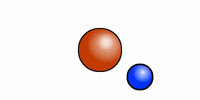
"A contraction of the rod as a consequence of its motion." (36)
"As a consequence of its motion the clock goes more slowly than when at rest." (37)
![]()
Like a magnetic field except larger the gravitational field is a disturbance in space; massive objects spinning on their axis of rotation distort real physical space.
Analogy of magnetic and electromagnetic waves to gravitational fields (63)
'The fundamental property of the gravitational field of giving all bodies the same acceleration..." " . . . the path of the relativistic field theory."
Law of the equality of inertial and gravitational mass, (68)
He moves inductively from the special case to the general rule. He is using non-Euclidean geometry to envision the four dimensions of space, time, energy and matter.
He assumes light is a barrier to information; at the speed of light time slows (ceases to exist) and space is infinitely massive (heavier than a black hole). When approaching this state measuring rods shrink their length contracts relative to the field's gravitational force; and thus that gravity & acceleration are indistinguishable to the observer.
![]()
He denies the plausibility of empirically observing any two actual events occurring simultaneously. [Temporal competitive exclusion principle]
• He is revolutionary because he rejects a previous universal vision.
• His replacement theory completes the tasks set out by Galileo and Newton by overturning classical Greek ideas about physical existence.
• Einstein is convinced that the speed of Light (C) is constant for all observers.[300,000 kilometers/ second {186,000 miles/second}]
• He suggests that light bends around massive objects.
• He argued that time and space were intimately associated with matter (mass) and energy so that mathematically they are equated in a method that accounts for the influence of one on each of the others.
"The success of Einstein's physics, which lies at the very foundations of our understanding of nature, resulted in an association of his name with the triumph of twentieth century science –"
"The new results achieved by relativity theory and quantum physics formed a new foundation for comprehending nature that then spread to other physical sciences and, in so doing, transformed the nature of the research enterprise."
"The technologies spawned by the mastery and control of nature are leading to the imminent destruction of nature in environmental catastrophe and, with it, to a new threat to life as we know it."
David Cassidy, Einstein & Our World, (1995), pp. 3 & 5.
"Einstein devoted three brilliant early papers during the years 1902 and 1904 to an independent derivation of the second law [of thermodynamics] in the course of developing his own 'statistical mechanics,' based on atoms and mechanics. Continuing in this work, what he called a 'general molecular theory of heat,' confirming that both laws of thermodynamics are, indeed, fully explicable on mechanical grounds. (Cassidy, p. 20)
David Cassidy, Einstein and Our World, NJ: Humanities Press, 1995.
Our intellectual mastery of nature is ironic for we do not control nature rather it controls us.
"Nature is not only stranger than we think it is stranger than we can think."
J. B. S. Haldane"It is impossible to know the results of your actions."
Chinese Proverb
Science Index | Site Analysis | Population Index | Global Warming Index | Nature Index



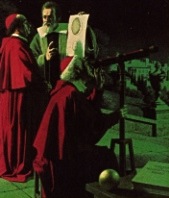
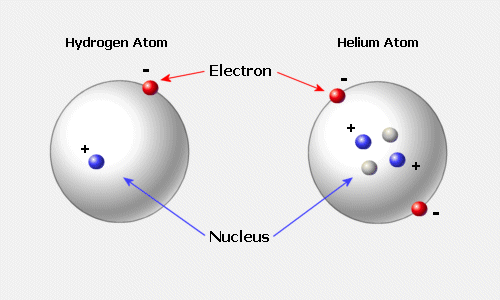

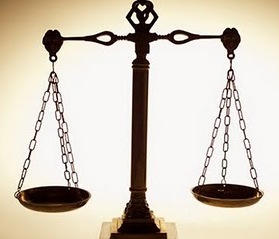
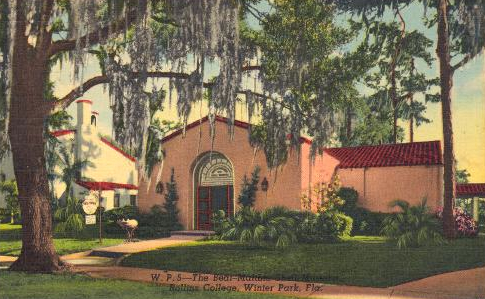



R.gif)

